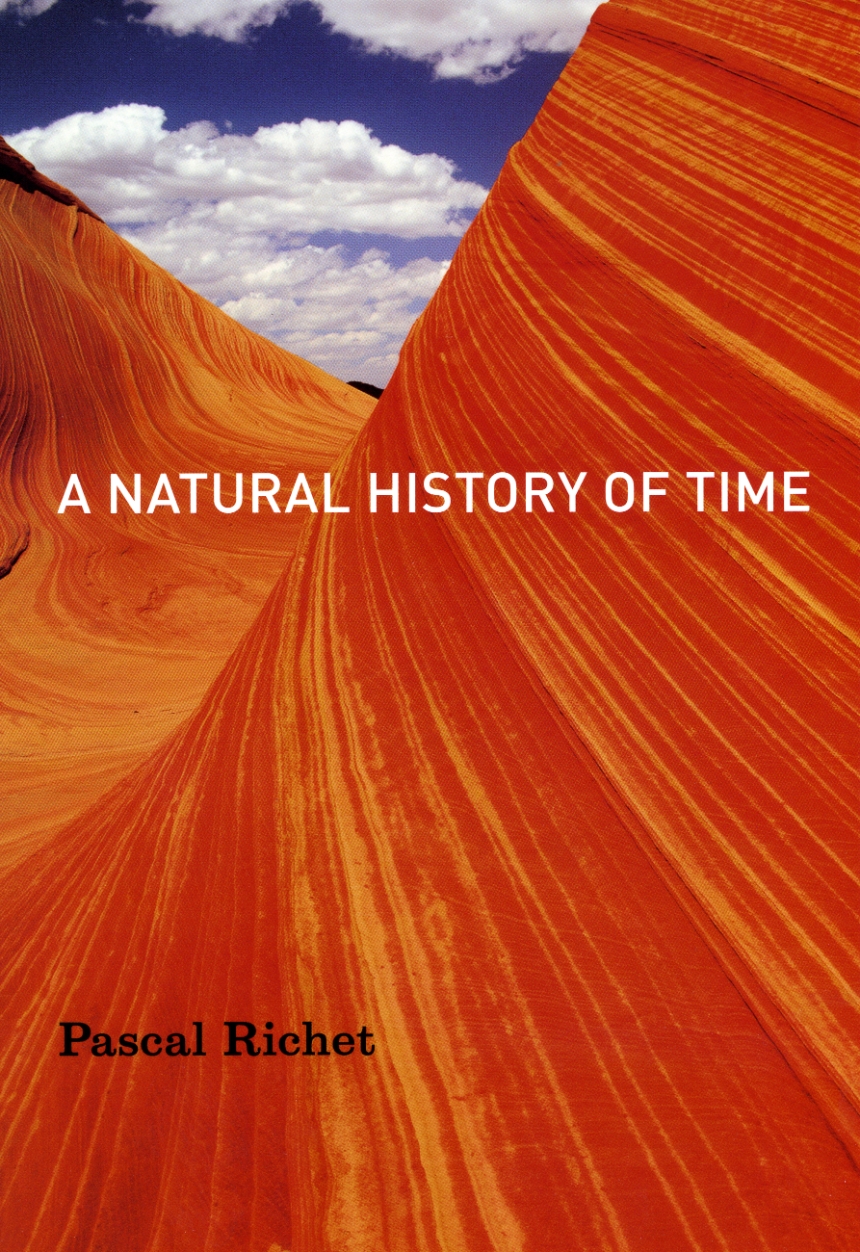A Natural History of Time
The quest to pinpoint the age of the Earth is nearly as old as humanity itself. For most of history, people trusted mythology or religion to provide the answer, even though nature abounds with clues to the past of the Earth and the stars. In A Natural History of Time, geophysicist Pascal Richet tells the fascinating story of how scientists and philosophers examined those clues and from them built a chronological scale that has made it possible to reconstruct the history of nature itself.
Richet begins his story with mythological traditions, which were heavily influenced by the seasons and almost uniformly viewed time cyclically. The linear history promulgated by Judaism, with its story of creation, was an exception, and it was that tradition that drove early Christian attempts to date the Earth. For instance, in 169 CE, the bishop of Antioch, for instance declared that the world had been in existence for “5,698 years and the odd months and days.”
Until the mid-eighteenth century, such natural timescales derived from biblical chronologies prevailed, but, Richet demonstrates, with the Scientific Revolution geological and astronomical evidence for much longer timescales began to accumulate. Fossils and the developing science of geology provided compelling evidence for periods of millions and millions of years—a scale that even scientists had difficulty grasping. By the end of the twentieth century, new tools such as radiometric dating had demonstrated that the solar system is four and a half billion years old, and the universe itself about twice that, though controversial questions remain.
The quest for time is a story of ingenuity and determination, and like a geologist, Pascal Richet carefully peels back the strata of that history, giving us a chance to marvel at each layer and truly appreciate how far our knowledge—and our planet—have come.
481 pages | 12 halftones, 27 line drawings, 3 tables | 6 x 9 | © 2007
Biological Sciences: Natural History, Paleobiology, Geology, and Paleontology
Earth Sciences: General Earth Sciences
Reviews
Table of Contents
1 Time without a Beginning?
2 On the Great Book of Moses
3 Genesis as Viewed through the Prism of Natural Philosophy
4 Nature’s Admirable Medals
5 The March of the Comets
6 Heroic Age, Relative Time
7 The Long History of Two Barons
8 The Elasticity of Time
9 The Pandora’s Box of Physics
10 The Sun, the Earth, Radioactivity--and Kelvin’s Death
11 The Long Quest of Arthur Holmes
12 From the Atomic Bomb to the Age of the Earth
Epilogue
Appendix: Mathematical Complements
Source Notes
Suggestions for Further Reading
Bibliography
Index
